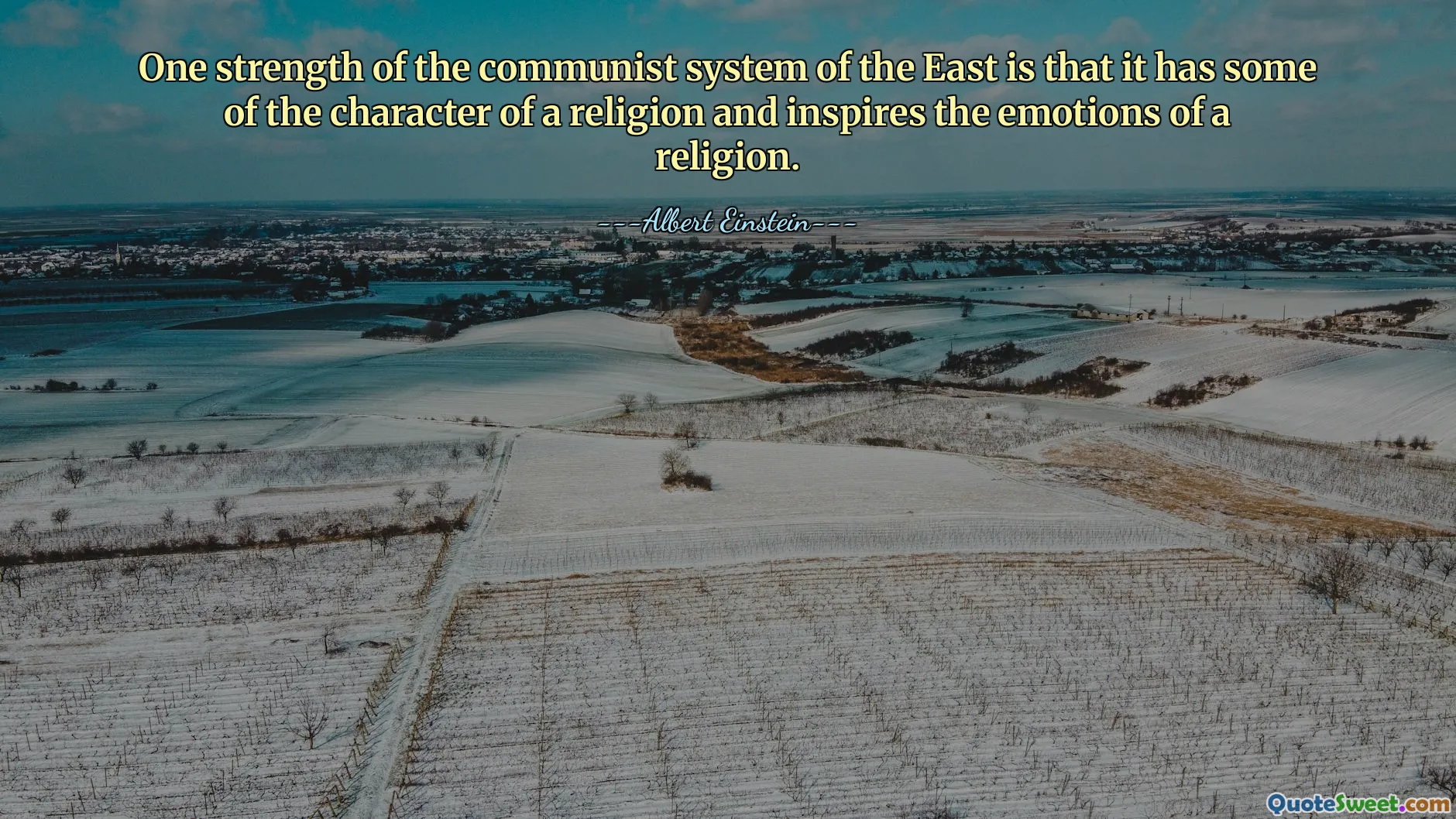
One strength of the communist system of the East is that it has some of the character of a religion and inspires the emotions of a religion.
This quote highlights a fascinating aspect of political systems, particularly those like communism, that extend beyond mere governance and economic structures to influence cultural and emotional aspects of society. The comparison to a religion suggests that the communist system is not solely about material or political objectives but also about fostering a collective identity and emotional unity among its followers. Religions historically have been powerful in shaping values, beliefs, and behaviors, often creating a sense of purpose and community that transcends individual concerns. When a political ideology adopts similar features—rituals, symbols, doctrines, and an overarching sense of purpose—it can generate comparable levels of devotion and emotional investment.
This emotional aspect can serve to unify individuals under a common banner, encouraging sacrifice and loyalty. It sustains ideological momentum, especially when faced with challenges or dissent, by invoking deep-seated feelings and shared convictions. On one hand, this mechanism can promote cohesion and stability within the society, fostering a collective resilience. On the other hand, it can also suppress dissent and critical thinking, as allegiance to the ideology becomes intertwined with personal or spiritual identity.
Reflecting on this, it underscores the powerful role that emotional appeal and symbolic practices play in both religion and political systems. It reminds us that the impact of an ideology extends beyond policies and laws—it's about how it resonates on a psychological and emotional level. Understanding this dynamic is crucial when analyzing any ideology's staying power as well as its capacity to motivate actions and shape societies at large.





